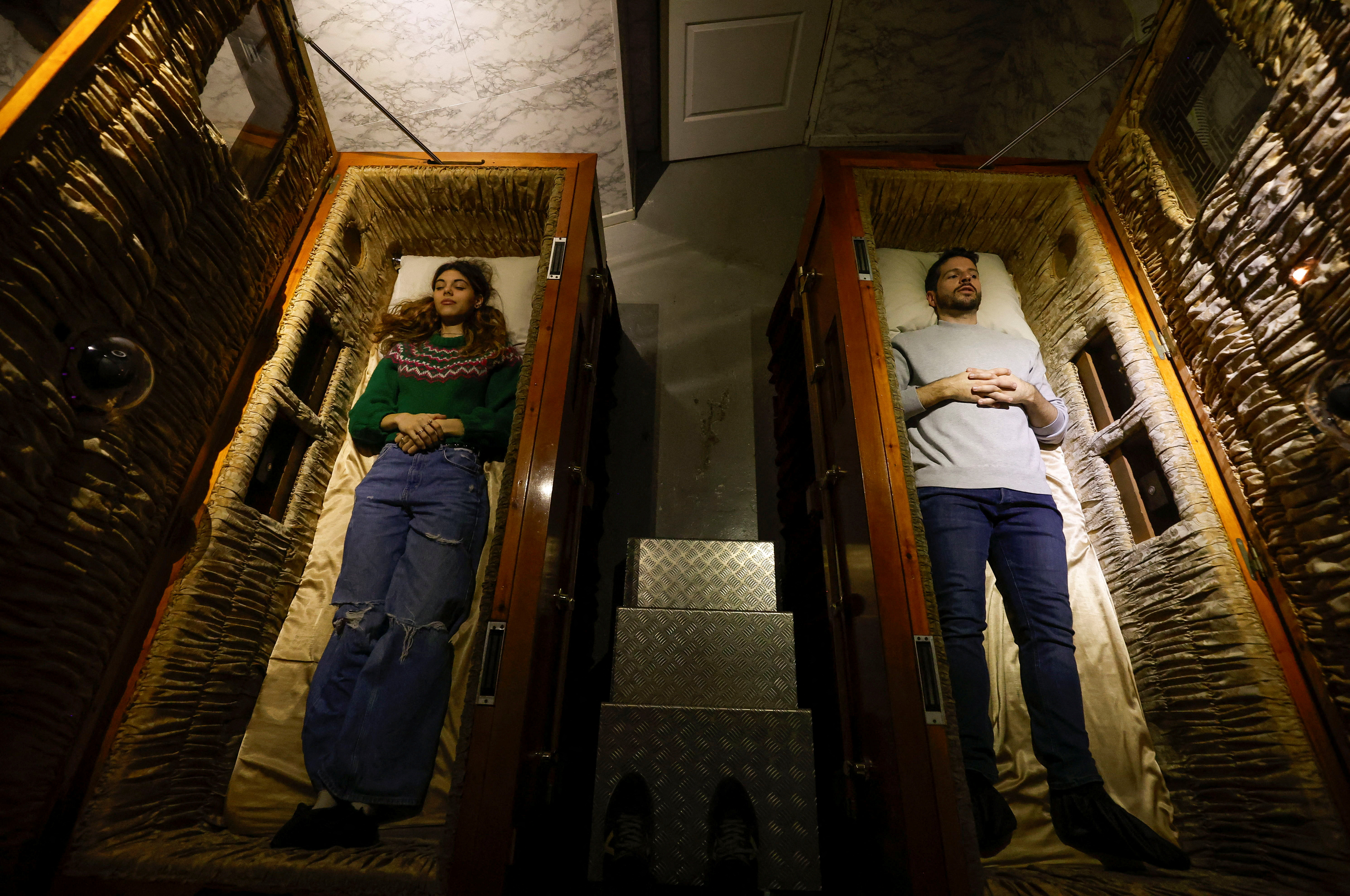Team Techniques: Exactly How to Collaborate Efficiently in a Getaway Space
Browsing the complexities of an escape space requires greater than simple interest; it requires a well-coordinated approach based in clear interaction, calculated function projects, and proficient time management. Groups have to proactively listen to each participant's insights, assign duties that straighten with private strengths, and keep normal check-ins to guarantee focus and prevent redundancy. By cultivating an atmosphere that values cohesion and flexibility, teams can considerably heighten their effectiveness and success rates. The subtleties of these methods can transform the experience, yet exactly how exactly can they be carried out to make the most of the potential for success?
Establish Clear Communication

To help with clear interaction, it is important to designate a central factor of contact for information circulation. Short, focused updates from each group participant can maintain the team notified without frustrating them with information.

Designate Functions Purposefully
While clear interaction sets the structure for effective team effort, assigning roles purposefully ensures that each employee's strengths are utilized efficiently. In an escape room situation, the time-sensitive and complicated nature of difficulties necessitates an efficient strategy to job delegation. By recognizing and leveraging private proficiencies, groups can enhance their problem-solving capabilities and boost overall efficiency.
Someone with an eager eye for information could stand out in discovering covert items, while a rational thinker might be much better matched to addressing puzzles. This duty commonly needs strong business and social abilities.
2nd, ensure that functions are flexible and adaptable. As brand-new obstacles arise, the group needs to have the ability to pivot, reapportioning jobs as required. This adaptability assists preserve momentum and avoids traffic jams that can happen due to rigid function tasks.
Inevitably, a strategic approach to role project not just makes best use of the staminas of each employee yet additionally cultivates a natural atmosphere, driving the team in the direction of an effective retreat.
Make Use Of Diverse Skills
Recognizing and utilizing the varied skills within your group can substantially boost your efficiency in visit the site a getaway space. Each staff member brings distinct strengths to the table, and properly leveraging these capacities can accelerate analytic and improve general effectiveness. As an example, a group participant with strong analytical skills may stand out at analyzing complicated codes or patterns, while an additional with keen empirical capacities may promptly identify hidden ideas that others may overlook.
Urge team members to voice their insights and ideas immediately, making sure that all potential options are considered. Furthermore, appointing jobs that straighten with each member's toughness can prevent bottlenecks and make certain that progression is constant.
Furthermore, variety in abilities commonly translates to variety in assuming designs, which is very useful in a getaway space setup. While some obstacles may call for rational reasoning and precision, others might profit from go to this site creative and association of ideas. By recognizing and leveraging this diversity, groups can address a wider variety of obstacles better, consequently increasing their opportunities of an effective escape.
Manage Time Efficiently

Determine noticeable challenges and divide jobs based on team members' toughness, making sure that nobody is idle. This practice can help maintain the team concentrated and protect against time from slipping away unnoticed.
Furthermore, stay clear of tunnel vision. If a problem is taking also long, revolve staff member or go on to another obstacle, returning later on with fresh viewpoints. Communication is paramount-- keep everyone upgraded on resolved puzzles and continuing to be jobs to prevent repetitive efforts.
Lastly, use any kind of hints or ideas moderately but tactically - best escape room. Knowing Full Report when to ask for aid can conserve important time. By sticking to these time administration principles, groups can considerably enhance their chances of a successful and delightful getaway space experience
Debrief and Reflect
Representation is an essential facet of team development and improvement in the context of retreat areas. Once the difficulty is completed, whether efficiently or not, it is essential for the team to involve in an organized debriefing session. This process permits employee to analyze their efficiency, determine strengths, and identify areas for improvement.
Start the debrief by discussing what worked out. Highlight specific instances of reliable interaction, analytical, and cooperation. Acknowledging these favorable habits enhances them and urges their rep in future challenges.
Next, address the obstacles came across. Go over moments of complication, miscommunication, or ineffective methods. Motivate an open and useful dialogue where employee can share their viewpoints without fear of criticism. This fosters a society of continuous enhancement and learning.
Final Thought
In final thought, effective collaboration in an escape room is based upon clear interaction, critical duty tasks, the efficient usage of varied skills, and skillful time administration. By creating a cohesive and adaptive team atmosphere, the chance of successfully solving puzzles and achieving the purpose of getting away the room is substantially improved.
 Daniel Stern Then & Now!
Daniel Stern Then & Now! Jennifer Love Hewitt Then & Now!
Jennifer Love Hewitt Then & Now! Danica McKellar Then & Now!
Danica McKellar Then & Now! Samantha Fox Then & Now!
Samantha Fox Then & Now! Lucy Lawless Then & Now!
Lucy Lawless Then & Now!